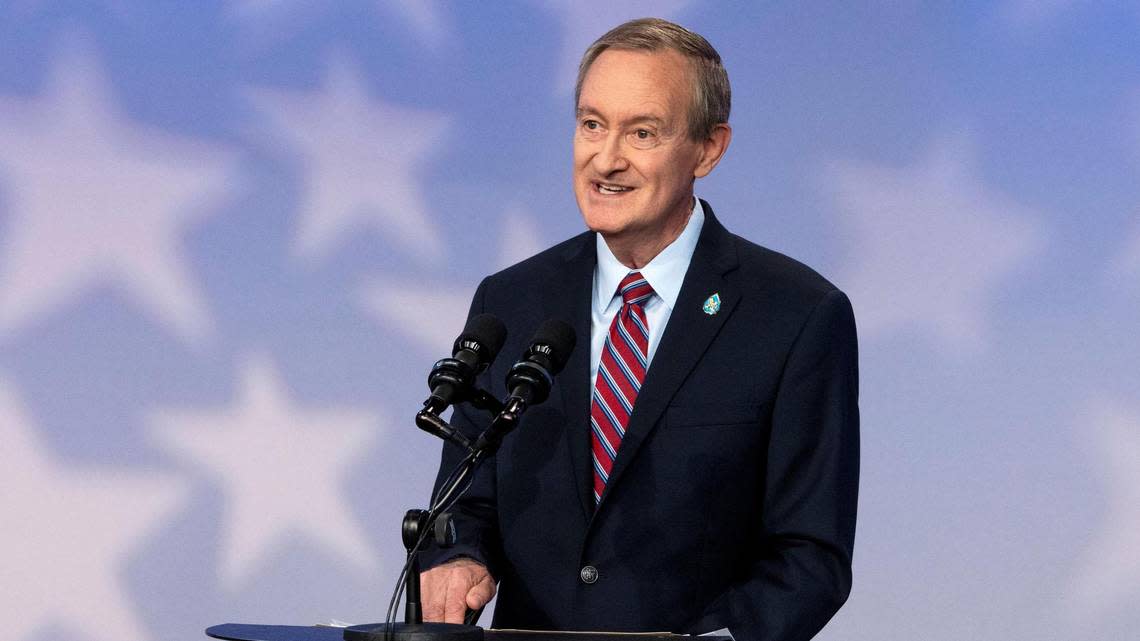Drug shortages put Idahoans’ lives at risk. Here’s a peek inside why they happen | Opinion
For treatments targeting any number of conditions, from pediatric cancer to mental health ailments, our ability to prevent and resolve drug shortages can mean the difference between life and death. As ranking Republican member of the Senate Finance Committee, I have been working to develop meaningful policy improvements to reverse the current rise in drug shortages.
Shortages disproportionately affect low-cost therapeutics. In fact, 84% of shortages occur in generic drugs, and 56% of products in shortages have unit prices below a single dollar. Given that generics comprise roughly nine in every 10 prescriptions filled across the United States, these shortages can inflict drastic harm on massive populations of Americans. The average shortage affects at least half a million consumers, forcing them to scramble for viable alternatives or else forgo treatment entirely.
As experts and officials have broadly affirmed, the structure of the generic drug market incentivizes a proverbial “race to the bottom” on pricing. Since 2016, generics have seen price erosion in excess of 50%. The razor-thin margins resulting from these dynamics trigger a host of dire consequences, from discouraging quality investments to spurring widespread outsourcing—including to China. Moreover, the generic drugmaker exit rate currently exceeds the rate of entry, and upwards of 40% of generic medication markets are supplied by a single manufacturer.
Rather than reduce shortage risks, unfortunately, a number of government policies likely make them worse. Medicaid’s inflation-based rebates, for instance, can trigger massive, uncapped losses on even low-cost generics. These and other price control policies warrant serious scrutiny. More broadly, our reimbursement systems, including under Medicare, offer little opportunity or incentive for drugmakers to compete on dimensions other than price — such as reliability and resiliency.
Enacting effective legislation to fix this problem requires bipartisan, bicameral collaboration. The Senate Finance Committee is working to build on our strong track record of solutions-oriented policymaking to address the rash of drug shortages afflicting families across the country. In December, the Committee held a hearing to explore effective legislative solutions to address the factors contributing to the shortages. Finance Committee Chair Ron Wyden, D-Oregon, and I followed the hearing with the January release of a plan to address the problems contributing to shortages through reforms to the Medicare and Medicaid programs. We are working on bipartisan health care legislation focused on the following areas under the Committee’s jurisdiction:
Medicare Part A and B payment reforms to stabilize supply of generic sterile injectable (GSIs) medicines;
New incentives for providers and other prescription drug supply chain stakeholders to engage in shortage prevention and mitigation activities, such as maintaining buffer inventory and developing sustainable contracts, and increasing supply chain stakeholder transparency;
Reforms or new pilot programs in Medicare Part D to bolster incentives for pharmacies to purchase generic medicines from drug manufacturers that invest in shortage mitigation, quality, and drug supply chain resilience; and
Potential reforms to the Medicaid Drug Rebate Program targeting generic medicines in shortage.
As the solutions to fix drug shortages are further refined, I continue to work to end drug shortages and provide Idahoans and Americans nationwide with better, more cost-effective health care.
Mike Crapo is a Republican who serves as Idaho’s senior senator.


